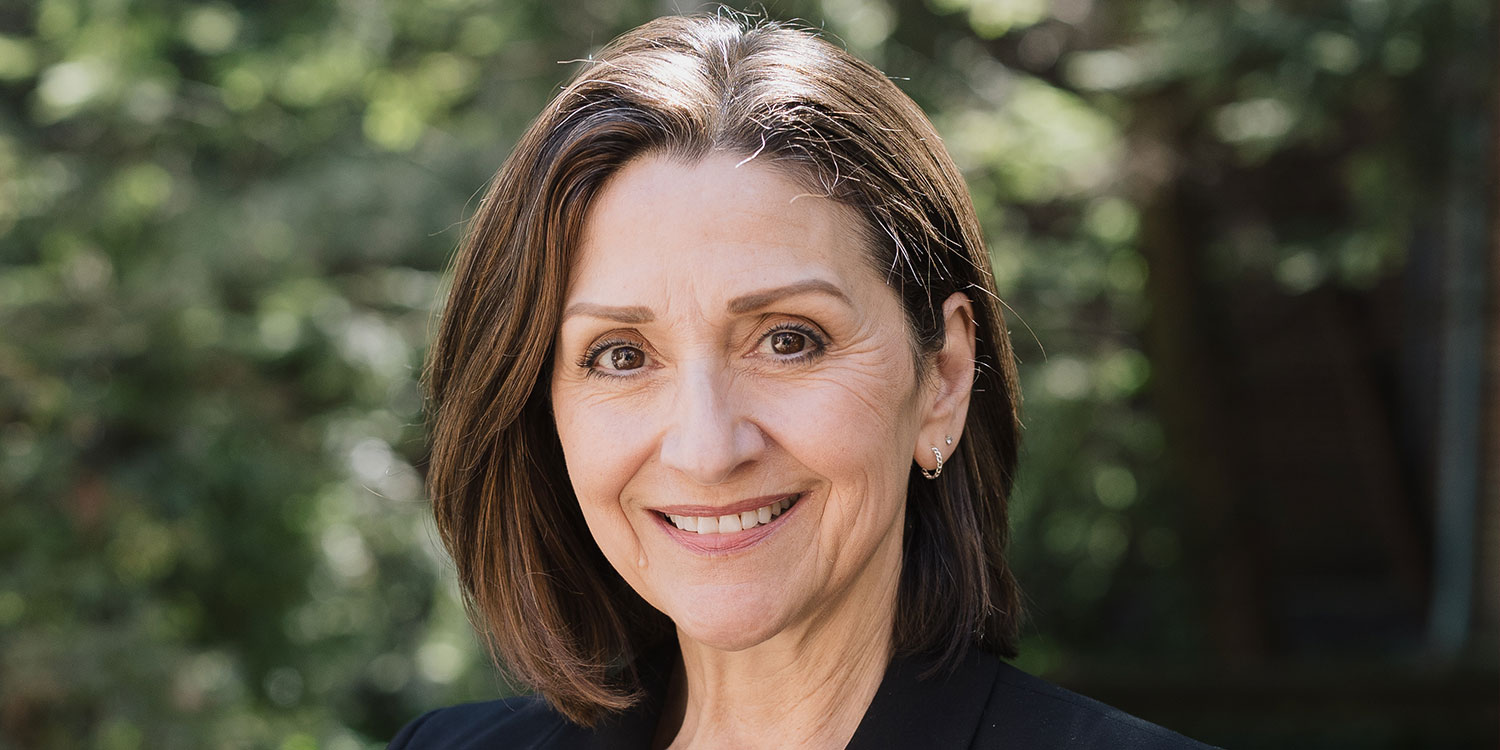When social work students walk into the office of Renda Ross, Ph.D., LISW-S, LLC, many arrive carrying more than concerns over course schedules or questions about licensure. They carry stories of uncertainty, of hope, of trauma, of ambition. And Ross, this year’s Outstanding Service to the National Association of Social Workers Ohio award winner, meets every one of them with the same presence: warm, steady, compassionate, and wholly invested in who they are becoming.
That grounding presence has defined her almost 30-year career as a clinician, professor, mentor, and leader. But long before she chaired Capital’s Social Work department or led the master’s program development, Ross was an undergraduate student discovering the power of human connection.
Her path began in Louisiana, where she was raised in “very traditional, kind of conservative family with a lot of love and care. I didn’t have a lot of experience with diversity. When I moved up [to Ohio] for graduate school, I started experiencing diversity in ways that helped me grow as a person.”
It wasn’t until a college course on interpersonal communication, taught by a marriage and family therapy professor, that she felt the first pull toward social work. Studying abroad opened the world further, revealing perspectives she had never encountered.
“You really can’t be successful in the helping profession if you don’t make room for all people and different perspectives,” Ross said. “Studying abroad was a really important experience in my undergraduate career, just by realizing how young America is and how many faith differences and background ethnicities there are.”
As she moved into clinical practice, working in child guidance clinics and later in medical social work at Riverside Hospital, Ross began to notice something: the deeper systems shaping families, communities, and care were often overlooked. That realization pushed her toward doctoral work and, eventually, toward an unexpected opportunity, teaching at Capital.
“When I first got to Capital, I had no idea how much support and care goes into teaching at a smaller liberal arts institution. It was a huge learning curve for me because I attended larger universities,” said Ross. “I had close relationships with some of my professors, but I just had no idea how wonderful it was to send your students to a place like Capital.”
What she discovered was a community eager not just for academic knowledge but for mentorship. Students brought with them complicated lives, full-time work, family obligations, histories of trauma, and dreams anchored in service. Ross made it her mission to help them chart their paths.
Jordan Johnson ’25, a transfer student from Columbus State Community College, remembers how Ross personally ensured that credits transferred correctly and helped build a realistic schedule for a full-time worker and full-time student.
“She was pivotal,” Johnson said. “As head of the Social Work department, I felt comfortable going to her with any concerns I had about my classes. As a professor, she brought her wisdom from her years in the practice into the classroom to make the content relatable, fun, and easily digestible.”
“For someone like myself who did not attend Capital for the traditional four years, I believe Dr. Ross is the perfect example of the type of professional Capital wants its students to attain to be. She is invaluable in the Social Work program, and I am thankful to have had her as an influential figure in my experience at the university.”
For Mujaddid Muhammad ’26, an MSW student, Ross’s support changed the course of his life. She guided him through enrollment challenges, followed up when things became difficult, and stood by him during personal hardships. When he was unsure about pursuing his MSW, she helped him weigh every option, gently nudging him toward a decision that became, in his words, “one of the best choices I’ve made for my future.”
“Professor Ross brings a rare combination of professional excellence, lived experience, and genuine humility. She not only understands the rigor and demands of the social work field but also remains deeply grounded and approachable. This unique blend allows her to guide students through complex academic, professional, and personal decisions while fostering a sense of belonging and confidence that is especially meaningful for new and developing social work students.”
That connection extends far beyond her classroom door. Inspired by Capital’s own research symposium, Ross founded a peer-reviewed research forum for the NASW Ohio Annual Conference. She wanted students and professionals across the state to have a space to tell their stories through scholarship, to explore social problems, and to imagine solutions. Watching students stand beside their posters or deliver their first oral presentations still fills her with pride.
“The symposium is one of my favorite days of the year at Capital, and so I get very excited to see people working to try to understand social problems and to better the lives of others through their scholarship and research. It's very exciting,” Ross said.
Her award from NASW Ohio recognizes her vision. It honors the countless hours she has invested to strengthen the profession, advocating for students, uplifting faculty, building programs, and creating pathways for continued work. But Ross sees the honor differently.
“I was really surprised,” she said. “I always think of awards like this going to people who spend hours in the community at like home encampments, but I think that service to the NASW directly affects the members of NASW.”
And so does service to students. When those students walk across the stage, step into agencies, return as instructors, or become advocates in their communities, they carry a piece of Ross’ legacy with them.
“You can't really fix everything,” Ross said. “But if you’re actually helping people identify their personal mission and purpose for being here, then you try to give them the skills, the knowledge, and the opportunities to go out and help others to try to make this world a better place, it helps when you’re feeling a little hopeless.”
To learn more about Social Work at Capital, visit https://www.capital.edu/academics/social-work/.
